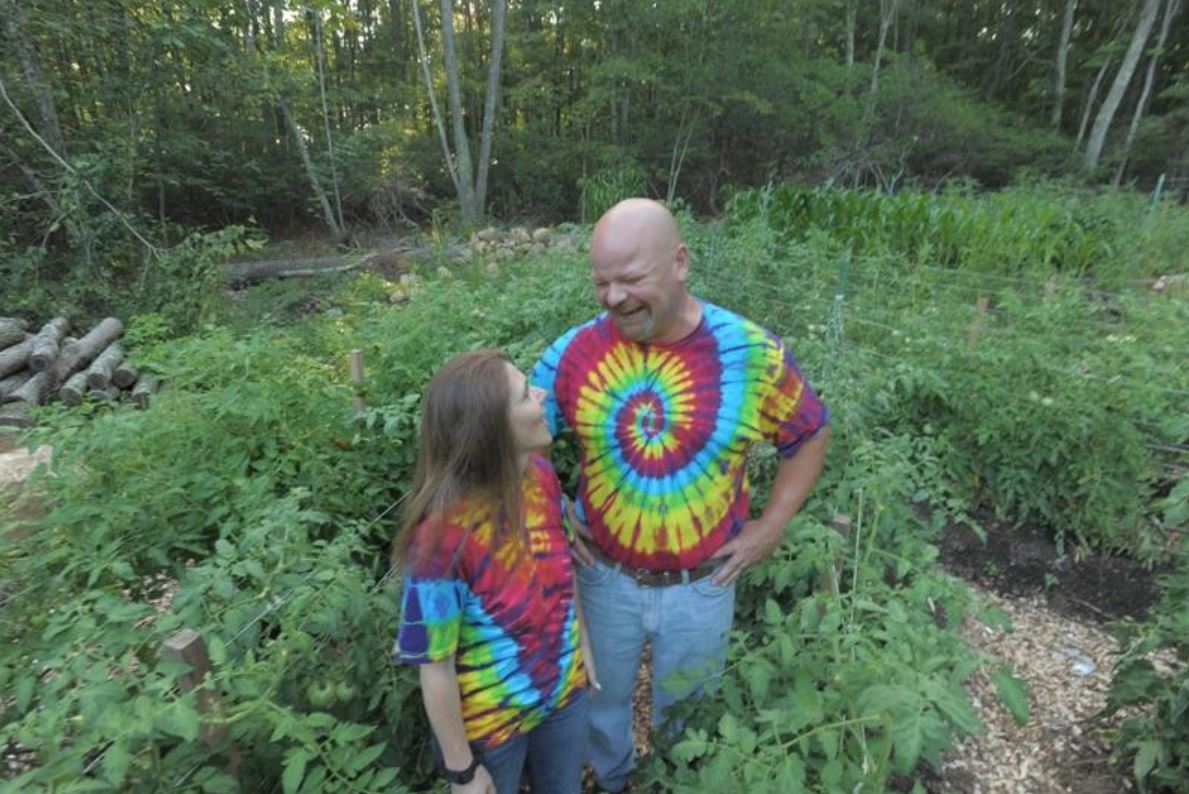Hot and Homegrown

Cushing’s natural, preservative-free salsa comes in three levels of heat: mild, medium, and hot. He also makes green tomato relish, called piccalilli, and it’s all sold under the Cush’s Homegrown label.
“Most salsas are like spaghetti sauce, with onions and peppers in it,” Cushing says. “We use big, chunky tomatoes, fresh ingredients and spices, and we’re the only salsa we know of that has honey as a sweetener.”
And that’s what really separates this salsa from the crowd.
Cushing said he started making salsa 14 years ago while living in Oakdale, using vegetables he grew in a small garden.
“I’d make it year after year but I couldn’t get it to taste just how I wanted it,” Cushing says, explaining that the hot peppers had a bitter flavor he couldn’t counteract.
Meanwhile, Cushing had eight beehives in his backyard, owned by his friend who produced honey, and the bees pollinated Cushing’s garden.
“One day I dumped half a jar of honey into the salsa, and it was a ‘Eureka!’ moment,” Cushing says. “It cut the bitterness without making it too sweet. I wanted to make a healthy salsa that didn’t have all the refined sugars in the (mass-produced) salsas.”
Two years ago, Cushing married and bought a house in Old Lyme. His wife, Lisa, is now president of Cush’s Homegrown. Both avid gardeners, they took down 18 trees on their property and expanded the small garden and pumpkin patch into an 80- by 50-foot garden.
The Cushings made batches of the salsa as well as picallili – his great grandmother’s recipe – in their kitchen. Friends asked them to bring it to every party and his large family — all living within a 15-mile radius — expected to see it on the table every time they got together.
“It’s kind of like people expecting turkey on Thanksgiving,” Lisa notes.
Everyone kept asking Cushing when he was going to start selling the salsa, but he says he was reluctant to go to the next level.
“We looked at each other and said, ‘It’s time to make the salsa,'” he notes.
The couple went into their new business full-steam ahead. They went from using 50 pounds of onions in their kitchen to 900 pounds of onions at Ultimate Foods, a federally approved commercial kitchen in New Haven that now produces the salsa. A staff of about a dozen people do all the prep work, cooking, bottling and labeling, while Cushing oversees the entire process.
“I go down to New Haven at 6 a.m. when they start cooking,” he says, “and (make sure) the recipe is followed to the letter.”
Picky about picallili
Picallili, which is also produced at Ultimate Foods, has been around for centuries, Cushing explains. Farmers, who didn’t like to throw anything away, made it out of the green tomatoes that weren’t going to ripen at the end of the season.
He says that when his mother tasted his salsa, she told him, “Someday you’re going to have a company and you have to have your great-grandmother’s recipe.” She gave it to him.

“It has a very unique taste,” Cushing says. “The vinegars and sugars I use make a big difference — and lots of spices.”
Picalilli is great with hot dogs and hamburgers. A few tablespoons mixed into baked beans really enhances the flavor, Cushing says. It’s also delicious on top of a thin-seared tuna steak.
He says he’s had an enthusiastic response from all the stores that now carry Cush’s Homegrown by simply walking in to each store with a case of salsa and some bowls, buying a bag of chips, and asking, “Which one do you want to try?”
The Cushings are also spreading the word as a sponsor of “Music Feeding Music,” Friday evening concerts at Pro-Tec Auto in Niantic, his brother’s dealership. They donate all proceeds from the events to local schools’ music departments.
Cushing is confident that producing and selling his salsa and picalilli is quickly on its way to becoming his new full-time occupation.


